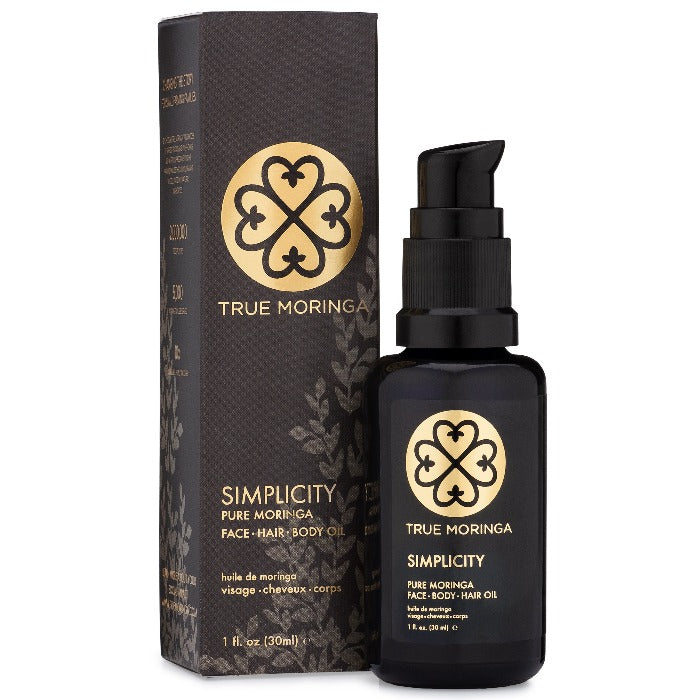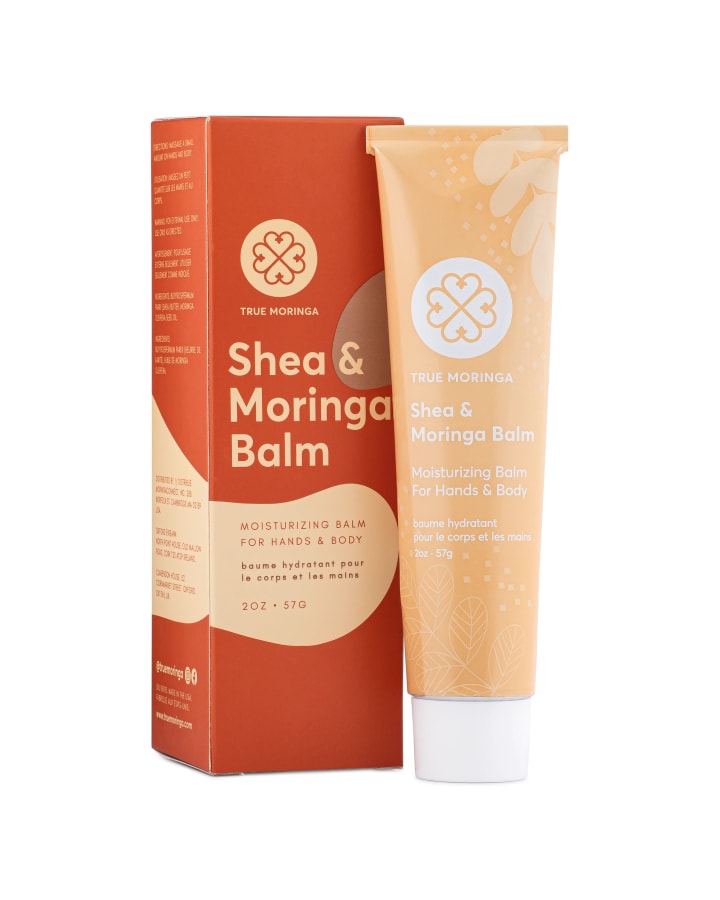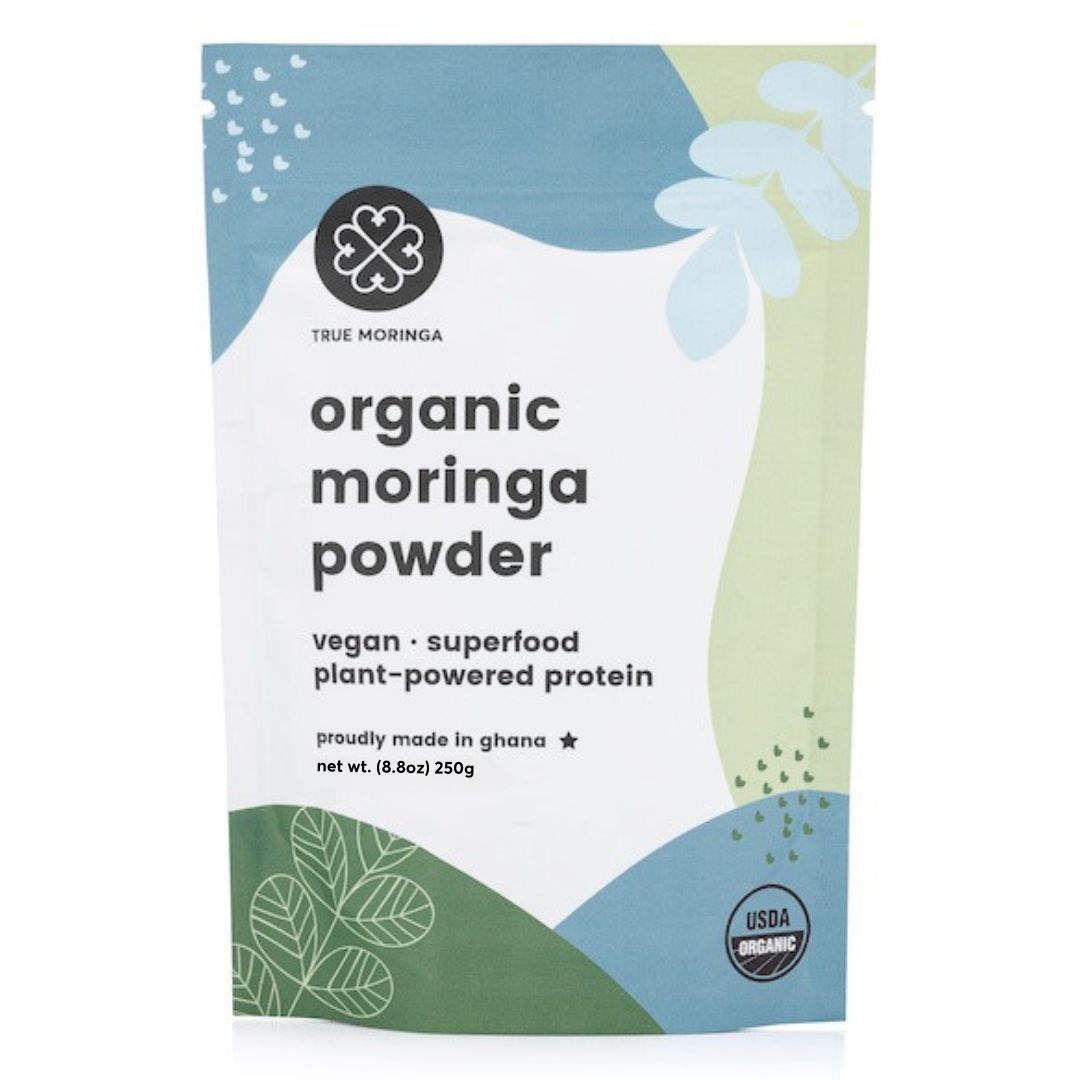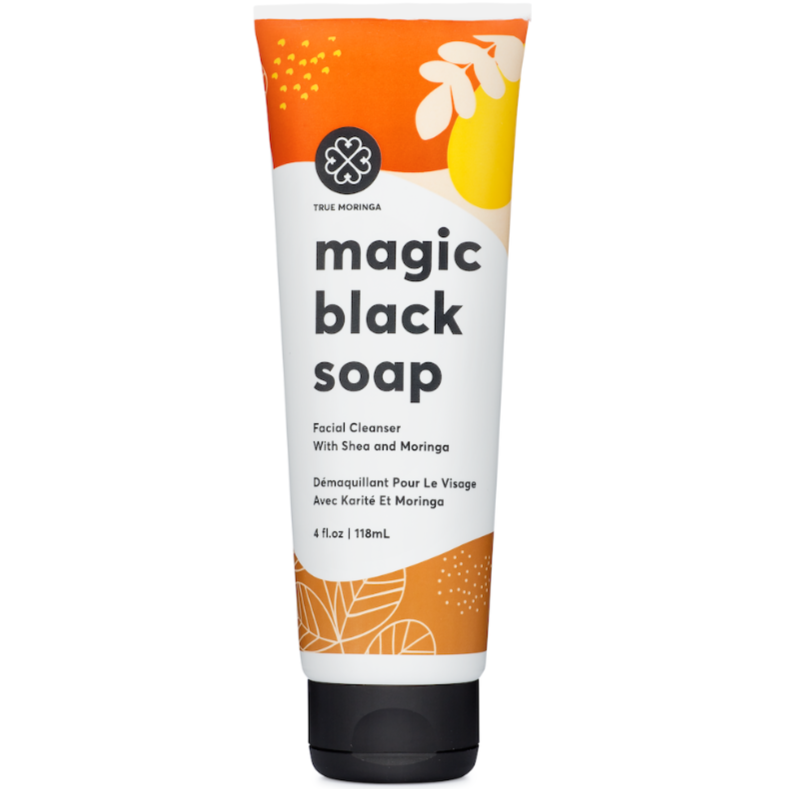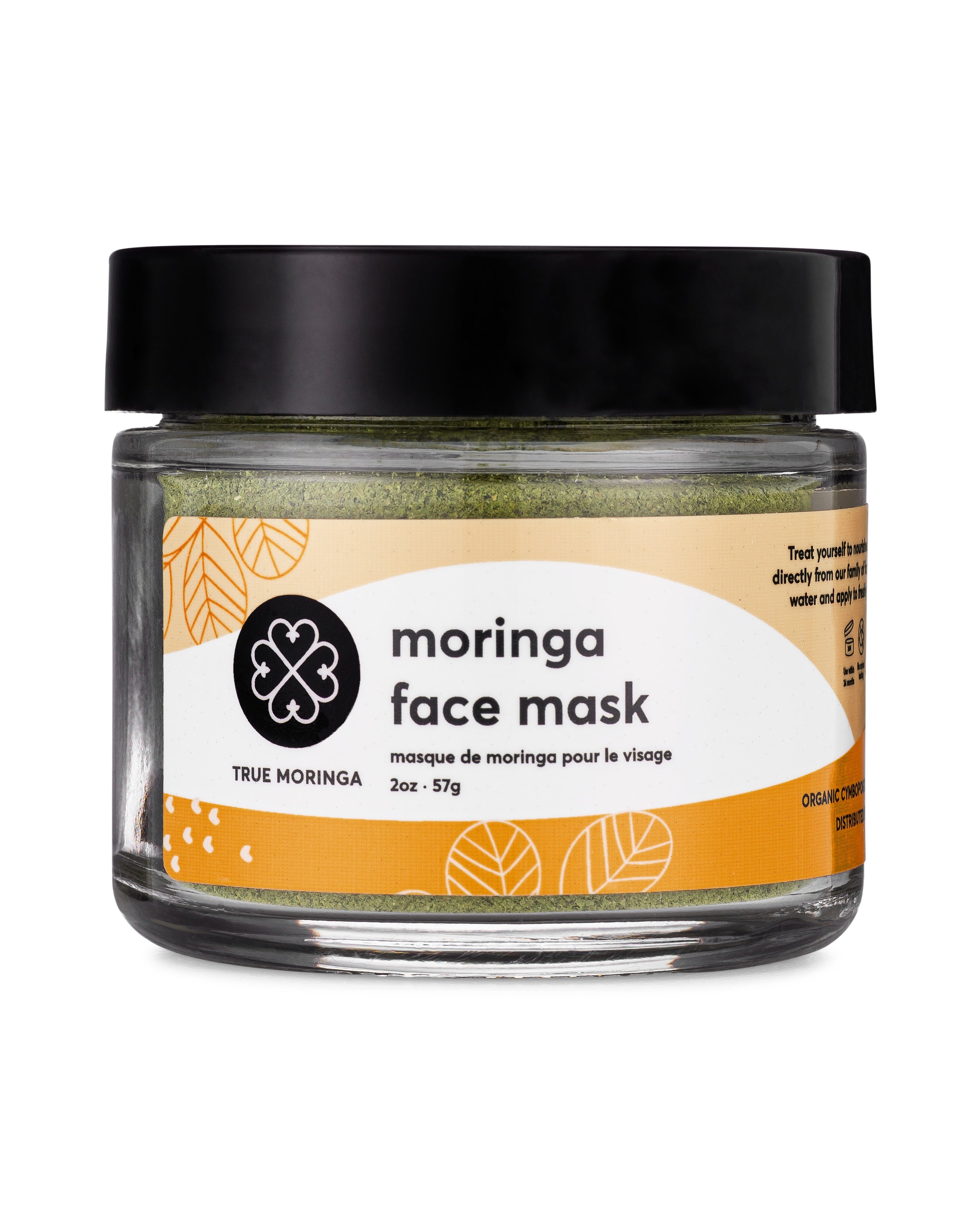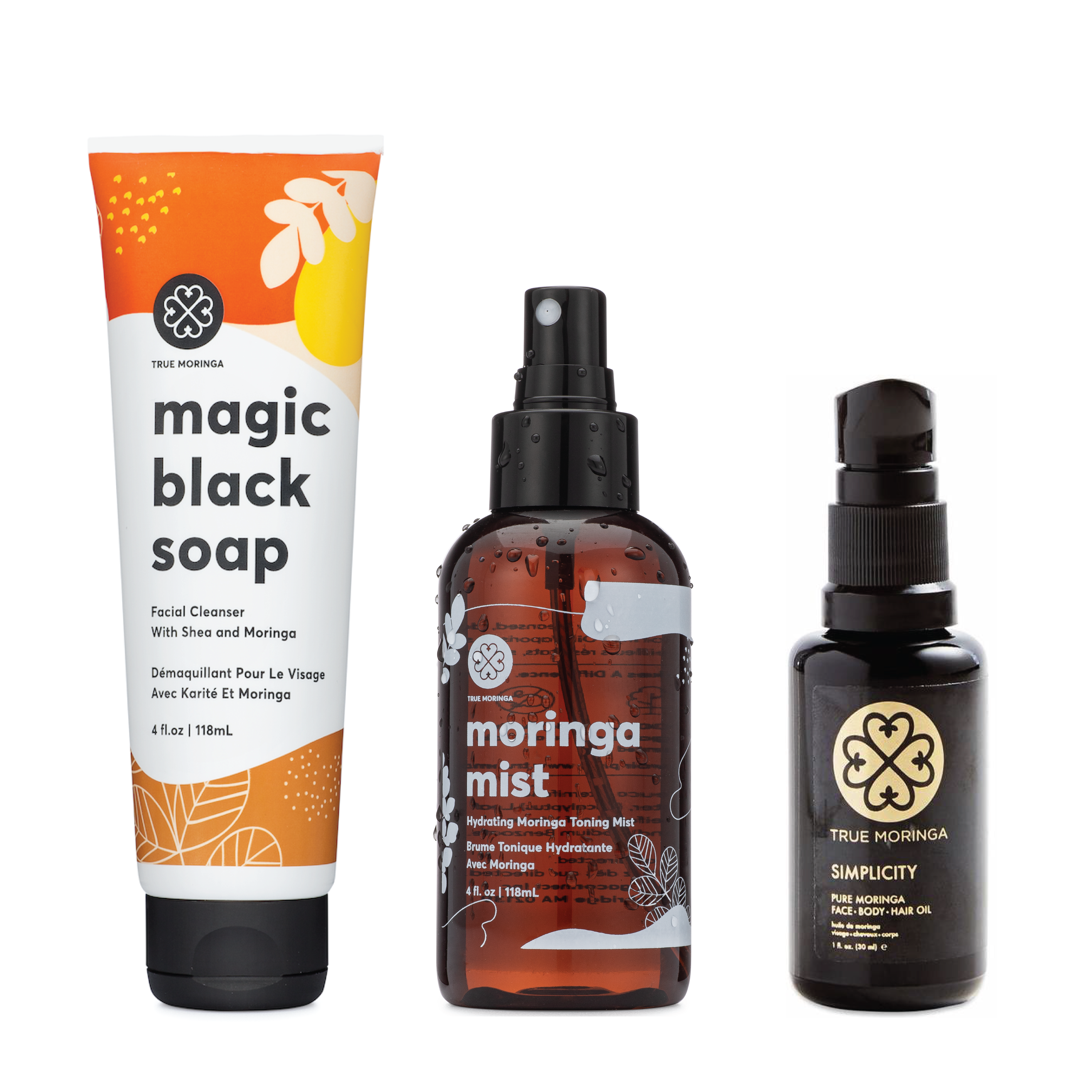


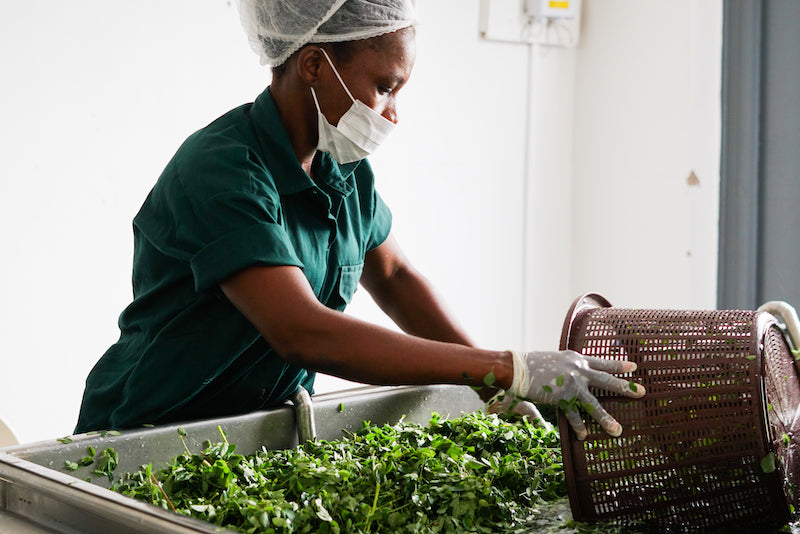
Ten things to know when sourcing bulk moringa powder
Moringa may be known as the “miracle tree,” yet the reality is not all moringa powder is created equally. There are many factors including soil conditions, water quality, processing standards and social dynamics that influence the end product. Whether you are purchasing for small batch production, DIY cosmetics, or to use as an ingredient in your company’s latest superfood, here are ten things to consider when selecting a sourcing partner.
- Is it 100% moringa leaf powder?
When you are purchasing moringa powder, it is most often dried moringa leaves that are milled into a powder. However it is possible to buy moringa seed powder or moringa leaf powder mixed with other dried herbs or even an anti-caking ingredient as part of a custom blend. Double check to confirm that the product does not include any other fillers. True Moringa’s moringa powder is 100% dried moringa leaves and is able to deliver the unique health benefits only moringa has to offer. [link to benefits]
- What color is the powder?
The color of moringa powder can vary from bright grassy green, to dull green to greenish brown depending on storage and processing conditions. We process our fresh leaves within 24 hours in low heat ovens to preserve the appearance, taste, and quality that you expect.
- How much protein is in my powder?
Moringa powder is naturally a high protein plant product but the percentage of protein can vary depending on the processing and parts of the plant used. The moringa leaf has considerably higher protein than the stem or stalk so a low protein percentage may indicate that the powder includes more non-leaf parts of the plant. High temperatures break down proteins which is one of the reasons True Moringa uses a low temperature oven to dry fresh leaves. Lab results have shown True Moringa powder contains up to 30% protein compared to some companies who offer 18-22% protein.
- Are there heavy metals in my moringa?
Unfortunately, one of the most common issues with moringa powder is it being contaminated with higher than safe levels of heavy metals. Heavy metals enter through the soil during the growing stage or from contaminated water that is used during washing. The areas that we source from have proven to be low in heavy metals so we are able to meet rigorous safety standards. Still, we regularly test to make sure that our moringa powder is within specifications.
- Is the powder safe at a microbial level?
Being a natural product, you will find some levels of microbes in any moringa powder - yay for gut health! The key is ensuring safe, low levels of harmless microbes while having a zero tolerance for germs that can actually make you sick. We conduct regular tests with external labories on samples from every single batch we produce to ensure that our standard operating procedures are producing the highest quality products every single batch. It is a good idea to ask for a certificate of analysis when purchasing wholesale products.
- What is the shelf life of the moringa powder?
The big four threats to freshness are humidity, heat, light and time. We package and store our moringa powder with multiple layers of production to make sure it arrives in the same condition as it does when it leaves are factory.
- How does production affect local communities?
When talking about impact, the how is as important as the what. True Moringa has worked with over 5000 farmers in Ghana to grow moringa powder. We currently source our moringa powder from our own nucleus farm which allows local ingrower farmers to grow moringa with guaranteed access to inputs and a market.
- How does the production process affect the environment?
The environmental impact of agriculture has both obvious and hidden impacts. Often, new farms can cause ancient forests to be cleared for agriculture use. For this reason, we source from existing farms or land that has been audited to be degraded land that can be reclaimed. Our nucleus farm near New Longo, Ghana uses solar irrigation that minimizes the use of fossil fuels. Older trees are left standing and buffer zones between the river and farm remain to encourage biodiversity.
- Is it organic certified and who is the certifying body?
To become organic certified, a company must complete an initial application process and annual inspections to make sure all processes and products meet the organic standards. True Moringa uses the France-based agency ECOCERT to make sure that our moringa powder is able to meet the proper standards.
- What other certifications does it have? What about kosher certification?
There are other certificates that may indicate the quality of the product and the processing systems. One of the more common requests is for Kosher certification. Some herbs and spice companies will add flow agents that make the powder not clump together. These flow agents can be animal- based. True Moringa does not have Kosher Certification. We don’t use flow agents and only process plant products in our factories, so these plant products are inherently kosher.
Sourcing bulk ingredients is about partnership and we are proud of the partnerships we have developed with our farmers and customers. Whether you are purchasing moringa powder for the plant protein, 46 antioxidants, 36 anti-inflammatory compounds or one of the other incredible health benefits, we are confident that True Moringa’s moringa powder will improve your end result. You can place an order today for as little as 25 kg from our website today. If you are in need of larger quantities, please email our team at info@truemoringa.com.

